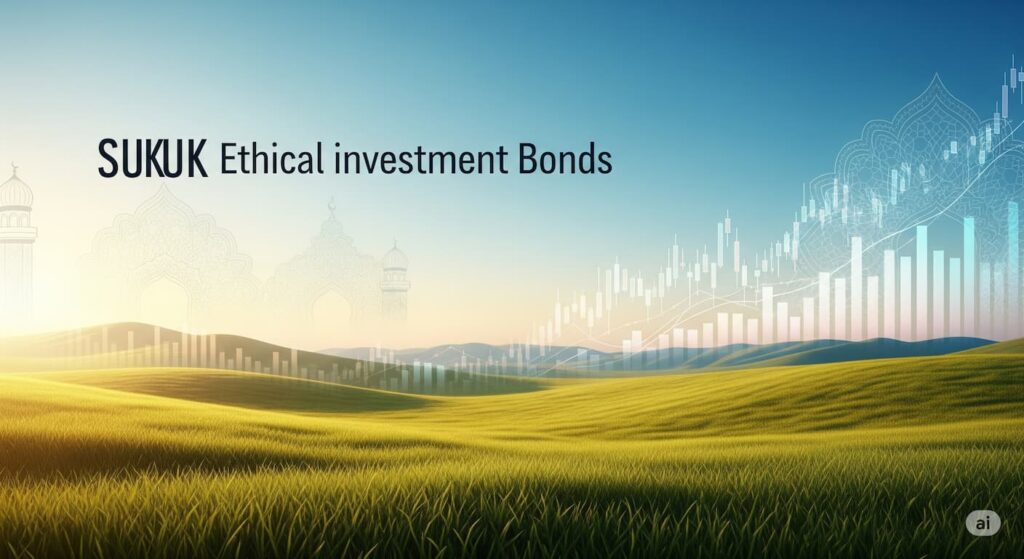- 1: What Are Sukuk Bonds? Understanding the Basics of Islamic Finance
- 2: How Do Sukuk Bonds Work? A Look Inside the Structure and Principles
- 3: Types of Sukuk Bonds Explained — Ijarah, Murabaha, Mudarabah & More
- 4: Why Are Sukuk Bonds Gaining Popularity in Global Financial Markets?
- Key Drivers of Sukuk’s Global Growth
- 1. Ethical and ESG-Friendly Investment Demand
- 2. Increased Regulatory Support in Western Markets
- 3. Diversification for Conventional Investors
- 4. Rising Demand from Muslim Diaspora in High-CPM Countries
- 5. Support from Multilateral Institutions
- Real-World Example: Sukuk Uptake in the U.K. and Singapore
- 5: Sukuk vs. Conventional Bonds – Key Differences Investors Should Know
- 6: Top Countries Issuing Sukuk Bonds in 2025 — Growth Markets to Watch
- 1. Saudi Arabia – The Sukuk Powerhouse
- 2. Malaysia – The World’s Sukuk Innovation Hub
- 3. Indonesia – Retail Sukuk Leader
- 4. United Kingdom – Europe’s Sukuk Gateway
- 5. Singapore – Asia’s Rising Islamic Finance Center
- 6. UAE – Corporate Sukuk Leader
- 7. United States – Emerging Interest in Halal Investing
- What This Means for You
- 7: Are Sukuk Bonds a Good Investment in 2025? Risks and Returns Explained
- Benefits of Investing in Sukuk Bonds in 2025
- 1. Steady, Asset-Backed Returns
- 2. Ethical and ESG-Aligned Investing
- 3. Attractive to Diversified Portfolios
- 4. Government and Multilateral Backing
- Risks and Considerations Before You Invest
- 1. Lower Liquidity in Secondary Markets
- 2. Currency and Regional Risks
- 3. Complexity of Structures
- What Returns Can You Expect in 2025?
- Pro Tip for First-Time Investors
- 8: How to Buy Sukuk Bonds – Platforms, ETFs, and Retail Access for Beginners
- 9: Future Outlook – What’s Next for Sukuk Bonds in a Digitally Evolving Market?
- Key Trends Shaping the Future of Sukuk Bonds
- 1. Rise of Green and ESG-Linked Sukuk
- 2. Blockchain-Backed Sukuk and Tokenization
- 3. AI-Powered Sukuk Structuring and Compliance
- 4. Global Standardization and Regulation
- 5. Greater Inclusion Through Digital Retail Access
- What This Means for Investors in 2025 and Beyond
- 10: What Experts Say – Insights from Financial Advisors and Islamic Scholars
- 11: FAQs and Resources – Your Sukuk Questions Answered
If you’ve ever wondered how to invest in a way that aligns with ethical, Shariah-compliant values—Sukuk bonds might just be what you’re looking for. Often referred to as “Islamic bonds,” these financial instruments are rapidly gaining global attention—not just in the Middle East and Southeast Asia, but in high-growth financial hubs like the United States, the UK, Singapore, and Australia. In this beginner-friendly guide, we’ll break down what Sukuk bonds are, how they work, why investors are turning to them in 2025, and what the future holds. Whether you’re a cautious beginner or a curious investor exploring halal investment opportunities, this guide has got you covered.

1: What Are Sukuk Bonds? Understanding the Basics of Islamic Finance
If you’re new to Islamic finance, the term Sukuk bonds might sound unfamiliar—but they’re actually one of the most important and fast-growing instruments in the world of ethical investing.
Sukuk, often called Islamic bonds, are Shariah-compliant financial certificates that represent ownership in a tangible asset, service, project, or investment. Unlike conventional bonds, Sukuk do not involve interest (riba), which is prohibited in Islamic law. Instead, investors earn a share of profits generated by the underlying asset—not fixed interest payments.
Here’s a simple way to think about it:
Traditional bonds = You lend money and get paid interest.
Sukuk bonds = You invest in an asset and share in the returns it generates.
This approach not only complies with Islamic legal and ethical standards but also appeals to a growing segment of global investors who are looking for ethical, asset-backed, and socially responsible alternatives to traditional debt-based securities.
In recent years, Sukuk issuance has expanded beyond predominantly Muslim countries like Malaysia, Saudi Arabia, and the UAE, into global markets such as the UK, USA, and Singapore, thanks to their transparent structures and stability in volatile times.
2: How Do Sukuk Bonds Work? A Look Inside the Structure and Principles
To truly understand Sukuk, it helps to dive a little deeper into how they function behind the scenes. Unlike traditional bonds, where you’re simply lending money and expecting interest in return, Sukuk represent shared ownership in a real asset or project. That’s what makes them both Shariah-compliant and ethically grounded.
Key Principles Behind Sukuk:
- Asset-Backed Structure: Every Sukuk must be linked to a real, tangible asset—such as real estate, infrastructure, or equipment.
- Profit-and-Loss Sharing: Instead of earning interest, investors share in the profits or rental income generated by the asset.
- No Speculation or Uncertainty (Gharar): Transactions must be transparent and based on known terms and values.
- No Interest (Riba): Sukuk avoids any form of interest, staying true to Islamic finance principles.
How a Typical Sukuk Transaction Works:
- A Special Purpose Vehicle (SPV) is created to hold the asset.
- Investors buy Sukuk certificates issued by the SPV.
- The SPV uses that capital to acquire the asset or fund a project.
- Investors receive periodic profit payments based on returns from the asset (e.g., rent or project income).
- At maturity, the principal is returned, and the asset ownership is transferred or liquidated.
This structure ensures that all financial activities remain tied to real economic value—not speculative money flows. That’s why Sukuk is seen as a more stable and transparent investment vehicle, especially in uncertain markets.
Why It Matters to Global Investors
Today’s investors—whether in the U.S., UK, Canada, or Singapore—are increasingly seeking ethical and asset-backed instruments. Sukuk meets that demand, combining financial returns with religious or ethical alignment. It’s not only popular among Muslim investors but also appeals to those interested in ESG (Environmental, Social, and Governance) investing.
3: Types of Sukuk Bonds Explained — Ijarah, Murabaha, Mudarabah & More
One of the most fascinating aspects of Sukuk is its versatility. Unlike conventional bonds that follow a single interest-based model, Sukuk can be structured in several ways—each rooted in different Islamic finance contracts. Understanding these types helps both new and seasoned investors decide which structure aligns best with their financial and ethical goals.
Common Types of Sukuk Bonds
1. Ijarah Sukuk (Leasing-Based)
- How it works: The issuer sells the ownership of an asset to investors and leases it back.
- Investor income: Comes from rental payments.
- Popular in: Infrastructure projects and real estate.
- Why investors like it: Stable returns, widely accepted model.
2. Murabaha Sukuk (Cost-Plus Financing)
- How it works: The issuer buys goods and sells them to investors at a pre-agreed profit margin.
- Investor income: Fixed profit (not interest).
- Popular in: Trade finance and short-term instruments.
- Note: Less favored in secondary markets due to Shariah concerns over tradability.
3. Mudarabah Sukuk (Profit-Sharing Partnership)
- How it works: Investors provide capital, and the issuer manages the project or business.
- Investor income: Share of actual profits (not guaranteed).
- Popular in: Startups, venture finance, or infrastructure.
- Why it’s unique: Encourages entrepreneurial partnerships.
4. Musharakah Sukuk (Joint Venture/Equity Participation)
- How it works: Both issuer and investors contribute capital to a joint venture.
- Investor income: Profit-sharing based on equity participation.
- Best for: Projects requiring long-term capital.
- Upside: Higher returns when the project performs well.
5. Istisna Sukuk (Construction/Manufacturing-Based)
- How it works: Issuer funds the construction or manufacturing of an asset.
- Investor income: Returns generated after project completion and sale.
- Used in: Infrastructure development and housing projects.
Choosing the Right Sukuk Type as a Beginner
If you’re just starting out, Ijarah Sukuk is often the easiest to understand and most commonly traded. For long-term or higher-risk portfolios, Mudarabah and Musharakah might offer stronger returns—but with more uncertainty.
These variations allow Sukuk to serve multiple purposes across retail, commercial, and sovereign finance, making it a flexible tool for modern Islamic economies—and increasingly for global ESG-conscious investors as well.
4: Why Are Sukuk Bonds Gaining Popularity in Global Financial Markets?
Once limited mostly to the Middle East and Southeast Asia, Sukuk bonds have now entered mainstream financial conversations in major markets like the United States, United Kingdom, Singapore, and even Canada. But what’s behind this global momentum?
The answer lies in a powerful mix of ethical appeal, regulatory acceptance, diversification benefits, and growing demand for Shariah-compliant investments across both Muslim and non-Muslim investor bases.
Key Drivers of Sukuk’s Global Growth
1. Ethical and ESG-Friendly Investment Demand
- As global investors shift toward environmental, social, and governance (ESG) criteria, Sukuk offers a naturally aligned model—free from interest, speculation, and unethical activities.
- Sukuk is increasingly being structured to fund green and socially responsible projects, giving rise to Green Sukuk.
2. Increased Regulatory Support in Western Markets
- Countries like the UK, Luxembourg, and Hong Kong have issued sovereign Sukuk, proving institutional support and legal framework readiness.
- The U.K. government’s Sukuk issuance has helped attract Islamic investors without compromising legal integrity.
3. Diversification for Conventional Investors
- Sukuk provides portfolio diversification through asset-backed, stable-return instruments.
- Especially appealing in volatile or inflationary environments, where traditional bonds may struggle.
4. Rising Demand from Muslim Diaspora in High-CPM Countries
- With large, affluent Muslim populations in North America, Europe, and Southeast Asia, there’s increasing demand for halal investment vehicles like Sukuk.
5. Support from Multilateral Institutions
- Entities like the Islamic Development Bank (IsDB) and World Bank actively support Sukuk issuance in developing and emerging economies.
- These efforts improve transparency, standardization, and investor trust.
Real-World Example: Sukuk Uptake in the U.K. and Singapore
- In 2021, UK’s second sovereign Sukuk was oversubscribed 2.5 times, with investors from the Middle East, Asia, and Europe.
- Singapore has positioned itself as a regional Islamic finance hub with dedicated Sukuk regulations and active financial institutions.
Sukuk’s momentum shows no signs of slowing down. With regulatory frameworks improving, investor education expanding, and the ESG investing boom continuing, these instruments are set to become a core component of ethical global portfolios.
5: Sukuk vs. Conventional Bonds – Key Differences Investors Should Know
At first glance, Sukuk bonds and conventional bonds might seem similar—they both raise funds and offer returns to investors. But underneath the surface, they operate on very different principles. These differences aren’t just theological; they affect how risk is shared, how income is generated, and how assets are managed.
Understanding these distinctions is crucial for investors seeking to make ethical and financially sound decisions—whether you’re based in the U.S., U.K., or Singapore.
Comparative Table: Sukuk vs. Conventional Bonds
| Feature | Sukuk Bonds | Conventional Bonds |
| Underlying Principle | Based on asset ownership and profit-sharing | Based on debt issuance and interest payments |
| Income Type | Profit or rent from a tangible asset | Interest (riba) on principal amount |
| Shariah Compliance | Fully compliant (no interest, no speculation) | Not Shariah-compliant (involves interest) |
| Ownership | Investors have partial ownership of an asset | Investors are creditors, not owners |
| Risk Sharing | Shared between issuer and investor | Mostly borne by issuer |
| Tradability | Can be restricted depending on Sukuk type | Freely traded in most secondary markets |
| Asset Backing | Must be backed by tangible or identifiable assets | May or may not be asset-backed |
| Usage in Ethical Investing | Common in ESG and halal portfolios | Rarely aligned with ethical investment criteria |
| Global Popularity | Growing in Muslim and non-Muslim countries | Long-established in global finance |
Why This Matters for Investors
If you’re looking for:
- Stable, asset-backed returns
- Shariah-compliant or ethical options
- Diversification beyond traditional debt instruments
Then Sukuk offers a unique advantage, especially in a global economy increasingly driven by transparency, sustainability, and ethical governance.
Sukuk doesn’t just serve religious needs—it addresses a modern demand for trust, fairness, and financial stability.
6: Top Countries Issuing Sukuk Bonds in 2025 — Growth Markets to Watch
As of 2025, Sukuk issuance is no longer confined to the Middle East or Southeast Asia. Governments and corporations across diverse regions—including Western financial hubs—are actively issuing Sukuk to attract ethical investors, diversify funding sources, and support sustainable development.
Let’s explore the top countries leading the way in Sukuk bond issuance this year and what that means for global investors.
1. Saudi Arabia – The Sukuk Powerhouse
- The Kingdom continues to dominate global Sukuk markets with regular domestic and international issuances.
- Sukuk is a key tool for Vision 2030 projects, especially in infrastructure, real estate, and clean energy.
- In 2025, Saudi Arabia introduced Green Sukuk to fund renewable energy projects.
2. Malaysia – The World’s Sukuk Innovation Hub
- Malaysia remains a global leader in Sukuk structuring and innovation.
- The Malaysian government and Bank Negara Malaysia offer consistent sovereign Sukuk.
- Private sector participation is strong, with robust legal and Shariah governance frameworks in place.
3. Indonesia – Retail Sukuk Leader
- Indonesia has successfully tapped into retail investor segments by issuing online Sukuk with attractive returns and low entry points.
- The 2025 “Sukuk Rakyat” initiative exceeded expectations with heavy investor demand.
- Backed by strong government commitment to Islamic finance inclusion.
4. United Kingdom – Europe’s Sukuk Gateway
- The UK issued its second sovereign Sukuk in 2021 and continues to promote Shariah-compliant finance through London’s financial district.
- Growing interest from ethical and ESG investors in Europe has driven demand for corporate Sukuk offerings.
- Home to a large Muslim investor base and Islamic finance institutions.
5. Singapore – Asia’s Rising Islamic Finance Center
- Singapore has implemented clear tax and regulatory frameworks to support Sukuk issuance.
- The country promotes cross-border Sukuk deals between Southeast Asia and the Middle East.
- Financial institutions like HSBC and CIMB actively participate in structuring Sukuk here.
6. UAE – Corporate Sukuk Leader
- The UAE, particularly Dubai, is leading in corporate Sukuk for real estate, aviation, and logistics sectors.
- 2025 has seen a surge in ESG-linked Sukuk issuance from Dubai Islamic Bank and Emirates NBD.
7. United States – Emerging Interest in Halal Investing
- While still in its early stages, U.S.-based investment firms and asset managers are exploring Shariah-compliant ETFs and Sukuk funds.
- U.S. cities with large Muslim populations (e.g., Chicago, New York) are showing growing demand for halal fixed-income options.
What This Means for You
For investors in high-CPM countries like the U.S., UK, and Singapore, this global Sukuk expansion offers:
- More choices for halal and ethical investing
- Access to diversified markets with different risk-return profiles
- Opportunities to participate in infrastructure, ESG, and cross-border growth projects
Sukuk’s international growth story is only just beginning—2025 could be the tipping point where these instruments become mainstream globally.
7: Are Sukuk Bonds a Good Investment in 2025? Risks and Returns Explained
As global markets face ongoing volatility, inflation concerns, and geopolitical uncertainty, investors are searching for safe, ethical, and inflation-resilient instruments. This is where Sukuk bonds stand out—especially in 2025.
But like any investment, they come with both upsides and trade-offs. Let’s break down the key benefits, risks, and performance potential of Sukuk bonds for today’s global investor.
Benefits of Investing in Sukuk Bonds in 2025
1. Steady, Asset-Backed Returns
- Sukuk are tied to real-world assets such as property, infrastructure, or lease agreements.
- This makes them less speculative and often more stable in value than traditional bonds, especially during inflationary cycles.
2. Ethical and ESG-Aligned Investing
- No involvement in prohibited sectors like gambling, alcohol, or interest-based finance.
- Growing availability of Green Sukuk, supporting sustainable infrastructure and renewable energy.
3. Attractive to Diversified Portfolios
- Especially for investors in high-CPM markets like the U.S., UK, Singapore, Sukuk add low-correlation exposure to traditional Western assets.
- Excellent for those seeking Shariah-compliant alternatives or ESG-eligible fixed-income tools.
4. Government and Multilateral Backing
- Many Sukuk are issued or backed by sovereign governments, boosting their credit quality.
- Strong support from institutions like the Islamic Development Bank (IsDB) adds credibility.
Risks and Considerations Before You Invest
1. Lower Liquidity in Secondary Markets
- Not all Sukuk are actively traded—especially Murabaha Sukuk, which may be harder to resell due to Shariah restrictions.
- This can make it difficult to exit early without incurring losses.
2. Currency and Regional Risks
- Many Sukuk are issued in emerging markets—currency volatility or political instability can affect returns.
- Investors should monitor regional economic health, especially in the Gulf and Southeast Asia.
3. Complexity of Structures
- Some Sukuk involve more complex legal and financial arrangements compared to conventional bonds.
- It’s vital to understand the underlying asset and profit-sharing mechanism before investing.
What Returns Can You Expect in 2025?
- Government-backed Sukuk (e.g., from Saudi Arabia or Malaysia): typically offer 3%–5% annual returns, depending on maturity and structure.
- Corporate Sukuk and Green Sukuk: can yield 5%–8%, sometimes higher for longer-term or ESG-linked projects.
Pro Tip for First-Time Investors
If you’re just starting out, consider investing through a Sukuk-focused ETF or Islamic investment platform to reduce complexity and diversify instantly.
Sukuk can be a smart addition to a balanced, ethically-driven portfolio in 2025—especially when combined with proper risk management and market research.
8: How to Buy Sukuk Bonds – Platforms, ETFs, and Retail Access for Beginners
So, you’re convinced Sukuk bonds are worth exploring—but how do you actually invest in them as a retail investor, especially if you’re based in countries like the U.S., UK, Canada, or Singapore?
The good news is that access to Sukuk investments has never been easier. Thanks to growing global demand and digital platforms, beginners can now invest in Sukuk through ETFs, online brokers, robo-advisors, and halal investment apps.
Where and How to Buy Sukuk Bonds in 2025
1. Sukuk ETFs (Exchange-Traded Funds)
- Best for: Diversified, low-effort exposure.
- Examples:
- iShares MSCI Global Islamic ETF (ISLG)
- Franklin Global Sukuk Fund (FGSUX)
- Why choose ETFs: Instant diversification, lower cost, and easier to trade via regular brokerage accounts.
- Available in: U.S., UK, Australia, and select EU markets.
2. Islamic Investment Platforms
- Best for: Faith-based investing with expert Shariah screening.
- Examples:
- Wahed Invest
- Zoya Finance
- ShariaPortfolio
- Some platforms offer Sukuk mutual funds and even fractional Sukuk investing for small portfolios.
3. Traditional Brokers Offering Sukuk Funds
- Best for: Investors already using services like Charles Schwab, Fidelity, or Interactive Brokers.
- Many global brokerage platforms now list Islamic fixed-income funds or Sukuk ETFs.
- You may need to filter for “Shariah-compliant” or “ESG fixed income.”
4. Direct Government or Bank Offerings (Retail Sukuk)
- Popular in countries like: Malaysia, Indonesia, and UAE.
- Example: Indonesia’s “Sukuk Rakyat” series can be purchased online with low minimums.
- Retail Sukuk access in Western countries is still limited but growing.
5. Robo-Advisors with Halal Portfolios
- Platforms like Wahed Invest and Sarwa (UAE) offer pre-screened portfolios including Sukuk exposure.
- Good for hands-off investors looking for automated, halal-compliant investing.
Tips for First-Time Sukuk Investors
- Check the fund’s holdings: Ensure it follows AAOIFI standards or is certified by a known Shariah board.
- Watch for fees: Some Islamic funds or ETFs charge higher management fees—compare options.
- Start small: Sukuk ETFs and mutual funds allow you to test the waters with low entry costs.
In 2025, investing in Sukuk no longer requires institutional access or deep pockets. Whether you want to build a faith-based portfolio or simply diversify with asset-backed ethical instruments, the tools are at your fingertips.
9: Future Outlook – What’s Next for Sukuk Bonds in a Digitally Evolving Market?
As we move deeper into 2025, Sukuk bonds are not just growing—they’re evolving. Technology, sustainability, and changing investor expectations are reshaping how Sukuk are structured, issued, and traded across global markets.
Let’s explore the trends driving the future of Sukuk bonds, and how investors—especially in high-CPM countries like the U.S., UK, Singapore, and Australia—can prepare for the next wave.
Key Trends Shaping the Future of Sukuk Bonds
1. Rise of Green and ESG-Linked Sukuk
- Investors and issuers alike are aligning with Environmental, Social, and Governance (ESG) principles.
- Green Sukuk is becoming mainstream—funding renewable energy, sustainable housing, and climate infrastructure.
- Example: Saudi Arabia and Malaysia are leading the issuance of climate-linked Sukuk.
2. Blockchain-Backed Sukuk and Tokenization
- Fintech is pushing Sukuk into the future with smart contracts and digital issuance platforms.
- Countries like Bahrain, UAE, and Indonesia have already piloted blockchain-based Sukuk.
- Benefits include lower costs, faster settlement, and greater transparency.
3. AI-Powered Sukuk Structuring and Compliance
- Artificial intelligence is helping Islamic banks and fintechs streamline Sukuk issuance, from credit analysis to Shariah auditing.
- Predictive models assist in risk forecasting and portfolio performance for Sukuk-based funds.
4. Global Standardization and Regulation
- Initiatives by AAOIFI, IFSB, and the Islamic Development Bank aim to create unified global Sukuk frameworks.
- Standardization reduces compliance risk and opens doors for cross-border Sukuk investments.
5. Greater Inclusion Through Digital Retail Access
- Platforms are now offering fractional Sukuk, mobile-based investing, and lower minimums to attract younger and retail investors.
- This will help Sukuk penetrate Western and non-Muslim majority markets, making ethical finance accessible to everyone.
What This Means for Investors in 2025 and Beyond
For investors in Western economies, this evolution means:
- More investment-grade Sukuk options
- Access to sustainable and tech-enabled offerings
- Participation in Shariah-compliant investing without complexity
Sukuk bonds are no longer just an “alternative”—they are emerging as core ethical assets in modern portfolios.

10: What Experts Say – Insights from Financial Advisors and Islamic Scholars
To round out our beginner’s guide to Sukuk bonds, it’s essential to hear directly from industry professionals—those shaping, regulating, and analyzing this evolving asset class. From Islamic finance scholars to global investment strategists, expert opinions provide the confidence and clarity investors need in 2025.
What Financial Advisors Are Saying
“Sukuk are becoming a must-have for globally diversified portfolios that prioritize ethical and stable returns.”
— Fatima Hussain, CFA – Halal Portfolio Advisor, UK
- Advisors in the U.S. and UK note that wealthy Muslim clients and even non-Muslim ESG investors are turning to Sukuk for steady yields and real-asset exposure.
- Platforms like Wahed, Amana Funds, and Franklin Templeton’s Sukuk Fund are increasingly recommended for first-time investors.
“Many clients appreciate Sukuk for offering fixed-income exposure without violating their ethical or faith-based values.”
— David Lang, Investment Strategist, Toronto, Canada
- Sukuk are gaining traction in financial planning conversations—especially as interest-bearing products face scrutiny in Shariah-compliant portfolios.
Views from Leading Islamic Finance Scholars
“Sukuk represents the essence of risk-sharing in Islam. As long as structures avoid legal tricks to mimic interest, they are a great tool for halal wealth building.”
— Dr. Mohammad Daud Bakar, Renowned Shariah Scholar, Malaysia
- Dr. Bakar emphasizes the importance of Shariah governance and transparency in structuring Sukuk, especially as new technologies like blockchain are introduced.
“With climate change and ethical finance at the forefront, Green Sukuk is the future of Islamic investment.”
— Sheikh Nizam Yaquby, Shariah Advisor, Bahrain
- Scholars are increasingly supportive of ESG-aligned Sukuk, provided the environmental projects are tangible and ethically sound.
What This Means for You
Hearing from experts helps build trust and authority, especially for beginner investors exploring Sukuk for the first time. The consensus is clear:
- Sukuk bonds offer real-world value,
- Fit naturally into ethical, diversified portfolios,
- And are well-positioned for long-term growth—especially in 2025 and beyond.
11: FAQs and Resources – Your Sukuk Questions Answered
Whether you’re new to Islamic finance or looking to diversify your ethical investments, it’s natural to have questions. Below are some of the most frequently asked questions about Sukuk bonds, especially from readers in high-CPM regions like the USA, UK, Singapore, Canada, and Australia.
Frequently Asked Questions (FAQs)
What makes Sukuk different from conventional bonds?
Sukuk are asset-backed, Shariah-compliant financial instruments where investors own a share of a real asset and earn profits, not interest. Conventional bonds, on the other hand, are debt instruments where returns are based on interest payments.
Are Sukuk bonds a safe investment?
Yes, many Sukuk—especially those issued by governments or investment-grade corporations—are considered low- to medium-risk, particularly due to their underlying asset structure. However, like all investments, they carry risks such as liquidity, currency exposure, and project performance.
Can non-Muslim investors buy Sukuk?
Absolutely. Sukuk is open to all investors and is increasingly popular among those interested in ESG and ethical investing, regardless of religious background.
How can I start investing in Sukuk from the U.S. or UK?
You can begin through Sukuk-focused ETFs, Shariah-compliant robo-advisors (like Wahed or Zoya), or traditional brokerage accounts offering Islamic fixed-income funds.
What is Green Sukuk?
Green Sukuk refers to Islamic bonds used to finance sustainable and eco-friendly projects, such as renewable energy, green housing, and waste management. It combines ethical finance with climate impact investing.
Is Sukuk investing suitable for retirement planning?
Yes, especially when used as part of a diversified, long-term portfolio. Many Sukuk funds are now included in ethical retirement portfolios due to their steady returns and capital protection features.
Final Thoughts
Sukuk bonds offer a compelling mix of financial stability, ethical alignment, and global growth potential. With improving accessibility and innovation in 2025, they’re no longer a niche product—they’re an essential part of the future of finance.
External Reference:
https://blog.zoya.finance/the-beginners-guide-to-sukuk
https://blogs.worldbank.org/en/allaboutfinance/state-of-the-sukuk-market-and-prospects-for-growth
https://www.lseg.com/en/insights/why-sustainable-sukuk-has-wind-in-its-sails



